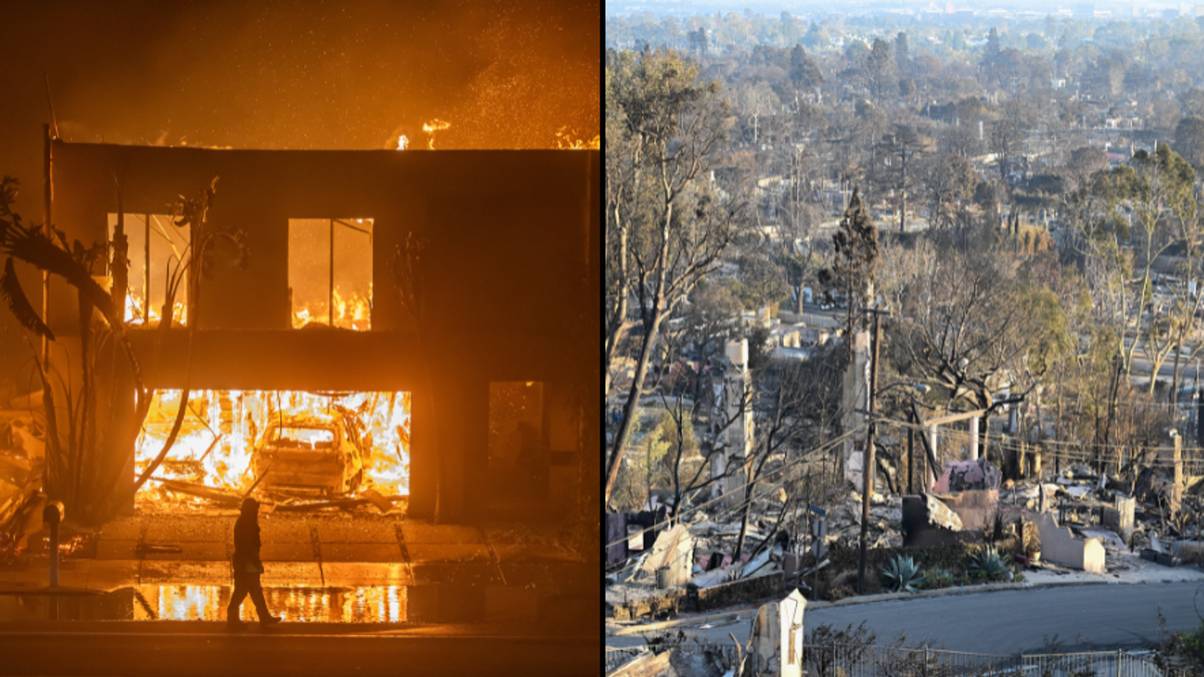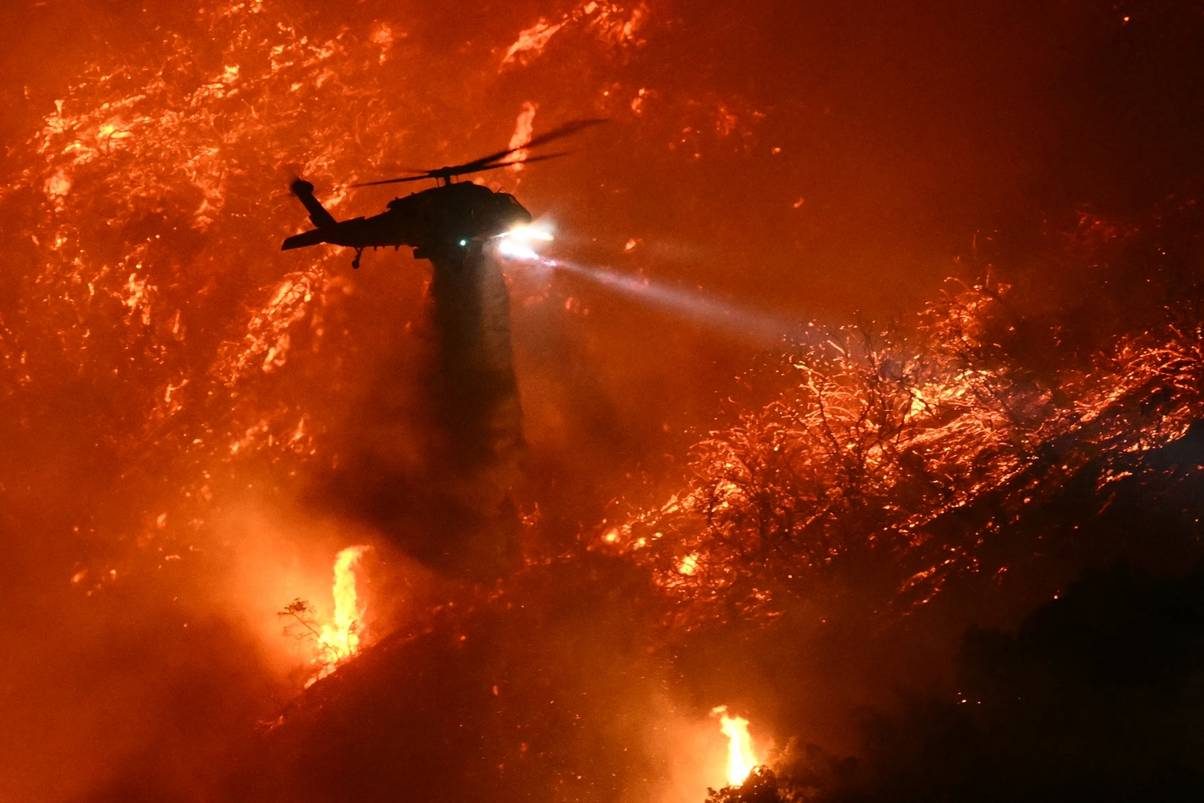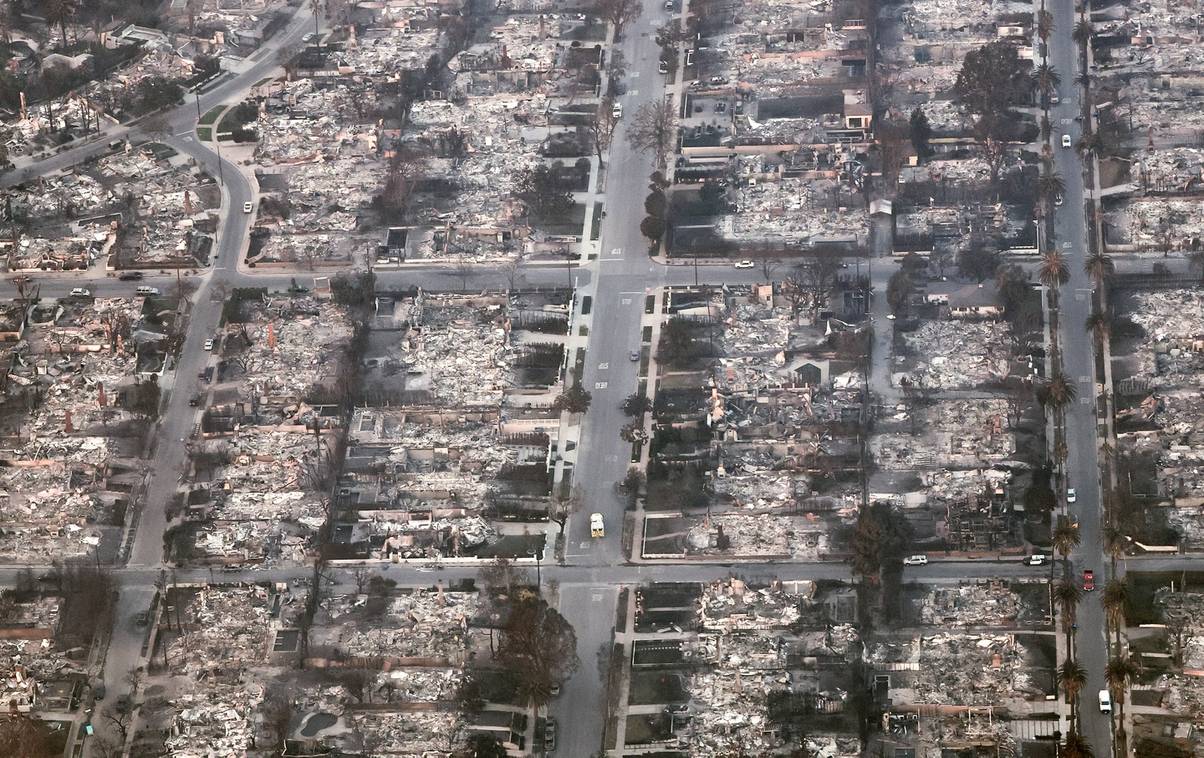
As the wildfires burning across California and particularly around the Los Angeles area continue into a second week, questions are being asked over how much longer they’ll continue to burn and cause even more devastation.
Officials warned that after a relatively calm weekend where progress was made in containing the multitude of blazes around the city, the return of high winds would make that task more difficult.
Over in the US, their National Weather Service issued red flag warnings for severe fire conditions through to Wednesday (15 January), while meteorologist Rich Thompson said that the worst day would be Tuesday (14 January).
He said: “You’re going to have really strong gusty Santa Ana winds, a very dry atmosphere and still very dry brush, so we still have some very critical fire weather conditions out there.”
Preparations are in place for the next strong winds that can spread the blaze, while the accounting of damage in the first week of the fire makes for grim reading.
First and foremost, among the damage caused by the LA wildfires are the 24 lives confirmed to have been lost, according to a revised death toll from the Los Angeles County coroner’s office.
Eight of the deaths have been attributed to the Palisades fire, while 16 have been put down to the Eaton fire, and authorities said that the death toll was likely to rise as there were 16 people missing.

Yesterday morning (12 January) officials said that the Palisades, Eaton, Kenneth and Hurst fires had destroyed over 62 square miles of the area around LA, meaning the blazes have razed an area larger than the size of San Francisco.
Around 59 square miles of those are the Palisades and Eaton fires, by far the two largest wildfires that make up this current disaster.
Around 150,000 people remain under evacuation orders in the area, while many thousands of structures including many people’s houses have been burned down.
There are some neighbourhoods where there is little left besides rows of charred foundations, while in other areas a handful of homes still stand amidst the burning wreckage.
As for how long the fires could last, Rolling Stone spoke to meteorologists Craig B. Clements and Allison Santorelli to learn about the conditions which could help bring down the flames.

Santorelli said that the wind and dry conditions had resulted in ‘perfect fire weather’, as high pressure across the western US was bringing in strong winds and low humidity.
Clements said that the ideal condition would be rain, but the fires had been burning through an area that hadn’t seen significant rainfall for months so it will be more about the wind, and high winds made it harder to fight the fire.
He said: “What really needs to happen is the winds need to die down and cease blowing so hard.”
Santorelli said that there would be ‘surface high pressure sprawled across the western US here for the next seven days’, suggesting that the winds may subside a bit by Friday (17 January) and give firefighters another window to make progress containing the spread of the fire.